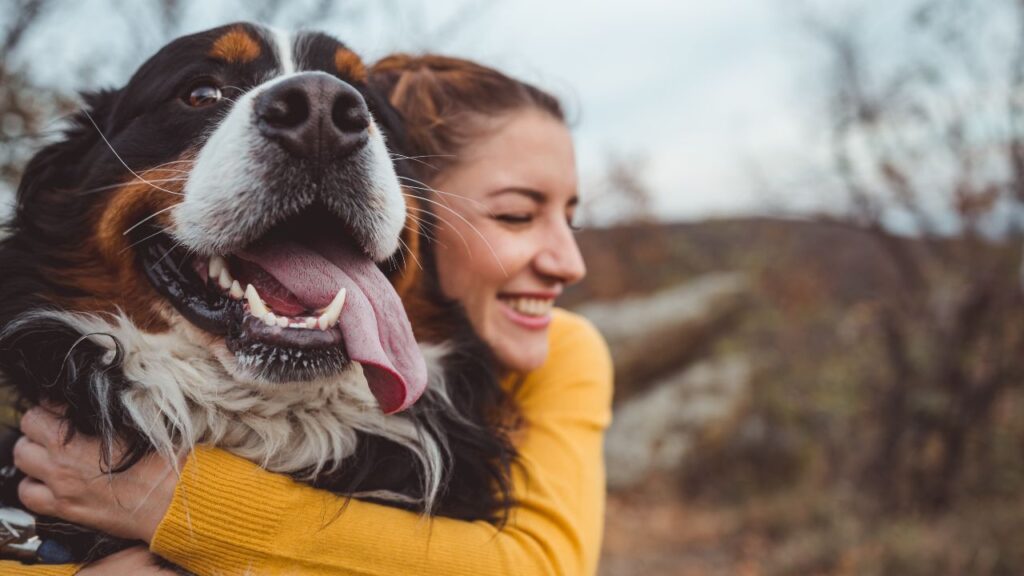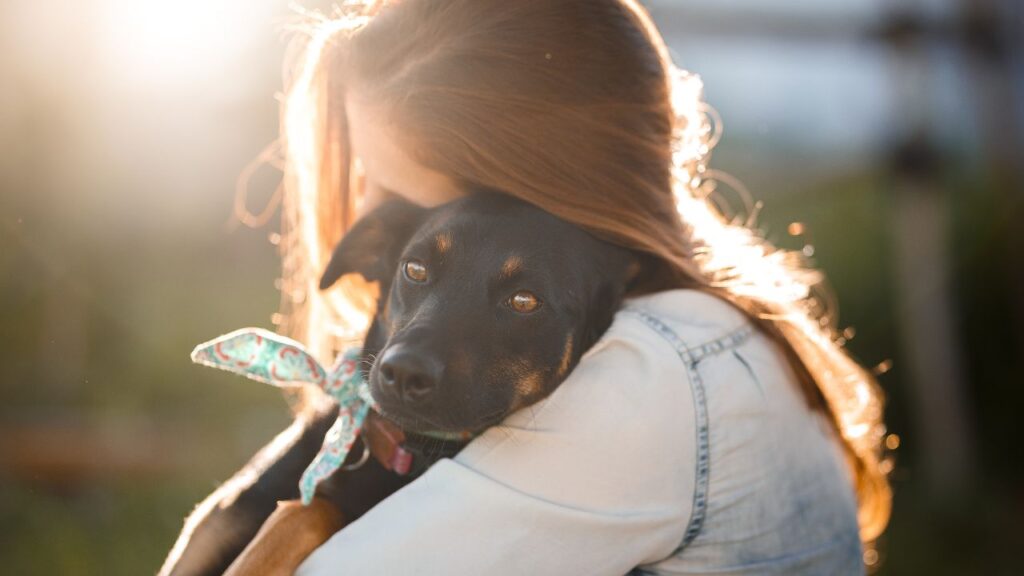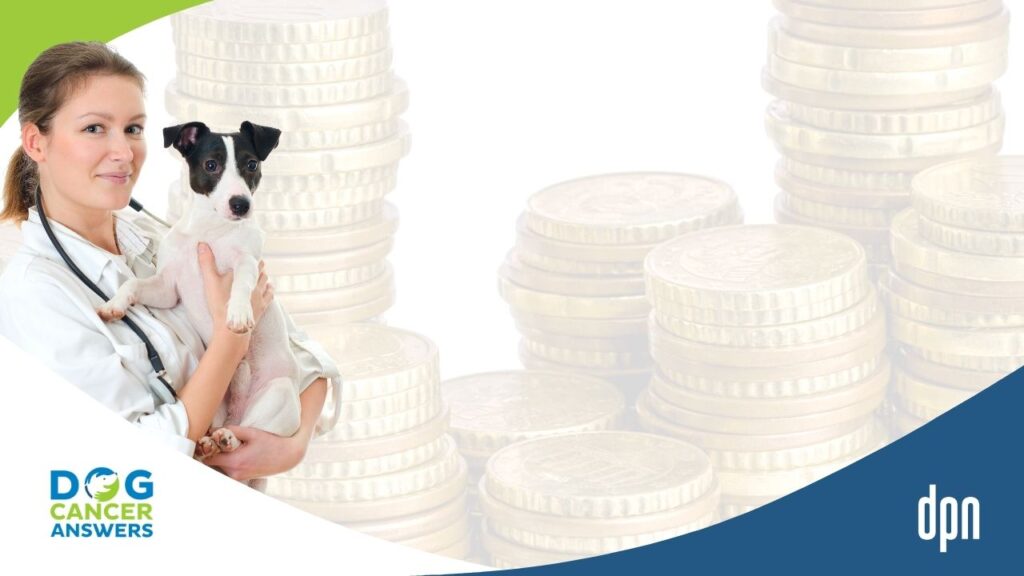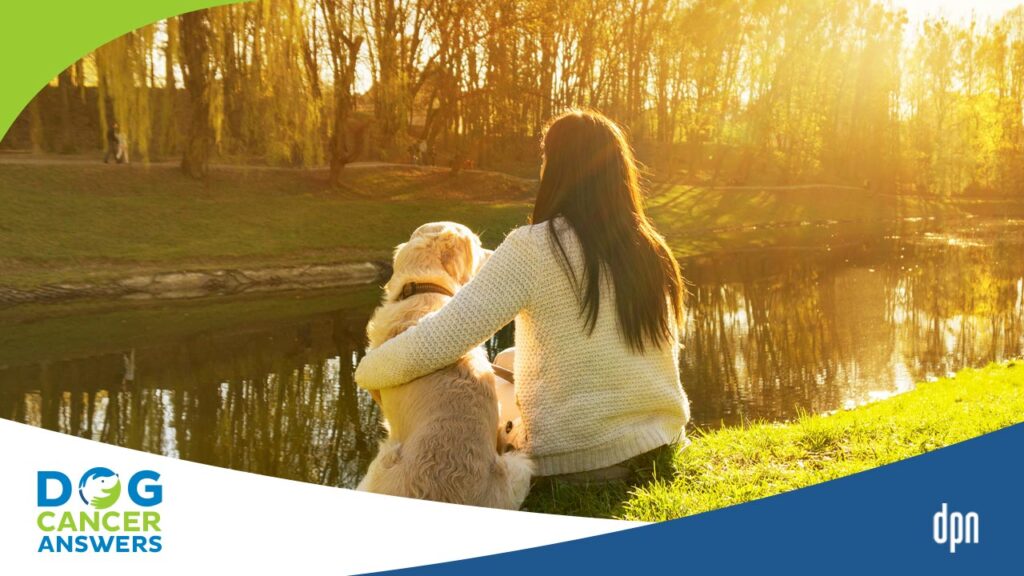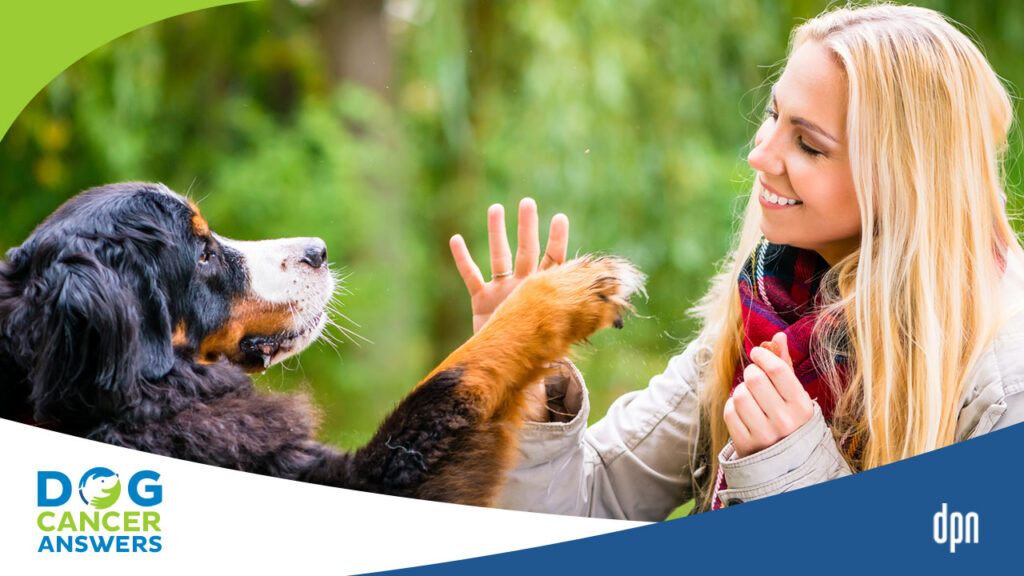>> Molly Jacobson: Are you letting the word cancer steal your dog? I’ve got a tip for you.
>> Announcer: Welcome to Dog Cancer Answers, where we help you help your dog with cancer.
>> Molly Jacobson: , I’m Molly Jacobson. I’m the Editor-in-Chief at DogCancer.com, where dozens of veterinarians, veterinary oncologists, cancer researchers, and science communicators work together to bring you information that’s vetted and complete about dog cancer so you can help your dog.
First of all, I should say that I’m not a veterinarian. This is not medical advice. I’m a dog mom just like you. I know exactly where you are. I know exactly what’s going on for you. And not only from my own experience, but from helping thousands and thousands of people over the years cope with their own dog cancer diagnosis.
When the veterinarian told you your dog had cancer, did you sort of black out a little bit? Maybe not exactly faint, but kind of stop being able to think or hear or maybe even see, like some people get tunnel vision? If I could take a magic wand and wave it, I would make it so that that word cancer just sort of lost its power.
That it just became another word in our vocabulary, and we didn’t think of it as a death sentence, because that’s the truth. The truth is that there are lots of things you can do for cancer, even if you don’t go and get a veterinary oncologist on board, and you don’t do all of the treatments they suggest.
There are still things you can do. I believe that even the act of taking your dog home and making them really comfortable for a little time or a long time, depending on your dog’s cancer diagnosis. I believe that is a dog cancer treatment, because quality of life and increasing their joy and their happiness is something that helps them.
When we are happier and relaxed and calm, we heal better, and that’s true for our dogs as well. Am I saying that a good game of fetch cures cancer? Of course not! But what I am saying is that we can do a lot of things to help our dogs, and if I had one really important tip, I would say, don’t let cancer, don’t let that word take your dog away from you or break your bond with your dog, because It shouldn’t. It should not be able to do that. Nothing should break that bond.
And I’ve seen it thousands of times with thousands of people in our Facebook support group, Dog Cancer Support. I’ve seen it in my own mind when our dog Kanga was diagnosed with cancer. I know I looked at her for days and thought, this dog is dying. This dog will die of cancer. And it might be soon.
And frankly, I couldn’t think about much else, which meant that poor little Kanga, who was used to a mom who pretty much thinks about her all the time, was left sort of alone. This is the number one thing that Dr. Dressler, who wrote the book The Dog Cancer Survival Guide, told me many, many years ago when I, as his editor, asked him why he wanted to write the book. He told me he was tired of the word cancer killing dogs in front of his eyes.
Now that’s obviously hyperbole, and he may have said something similar to that, but not quite that, but that’s how I remember it because that’s what it felt like to him, that he would steel himself before he went into the exam room to deliver that news because he knew that as soon as he said the word cancer, the person in that room would lose touch with their dog and would start to think of their dog as either dying or almost ready to die.
And he hated being in that position because that’s not his mindset. His mindset is this is a serious illness that we should manage. That’s the mindset of a lot of veterinarians and that’s certainly the mindset of veterinary oncologists. It’s a serious illness that should be managed. Just like diabetes or heart disease.
These are things that, there are things that can be done and we should do them. But the word cancer just sort of interrupts people. So, the reason he wrote the book, and the reason I’m here today, honestly, to make this video for you, is to let you know that that word doesn’t have the meaning, and doesn’t have the force behind it, that it might feel like it does.
Take the time to get help for how you feel from a counselor, a support group, some sort of a pastoral figure in your life, a sympathetic friend who also loves dogs. Don’t talk about this with people who don’t love dogs because they really won’t understand. But find a way to process your feelings, your grief, and your fear, and then get back to the most important work, which is loving your dog.
Being there for your dog. So let’s take a quick moment to hear from our sponsors and then I’ll be back.
And we’re back. As I was saying, dogs pick up on our emotions. That’s not just an idea. That’s now something we know. They are very empathetic. And they don’t know they have cancer. So they don’t know why you’re so upset. So if you can, give yourself permission to feel your feelings away from your dog. And then when you’re with your dog, try as hard as you can to do a really good job of being a loving dog parent.
Keep up their routine schedules. Give them their meals at the same time they’re accustomed to. Go for walks at the same time that you’ve always gone for walks. Play the play sessions. Do the things they love. Give them the treats that they are used to. Unless your veterinarian tells you those treats are inappropriate or will interfere with their treatments, I really believe that dogs, they just get so much joy out of their treats.
Creating the joy and the love that you and your dog have shared for years is your most important job right now as the parent of a dog with cancer, because they don’t know they have cancer, and you shouldn’t tell them. Let them have the life that they love, even as you continue to treat. Whether you are doing extensive treatments, that require lots of veterinary visits, or whether you are just doing palliative care at home, give them the feeling that nothing has changed so that they don’t worry that your love for them has changed.
That’s my really big tip, and in some ways, it’s the tip of all tips. I have many more that I have formulated over the years as someone who’s been watching people like you very closely as you go all the way through your dog cancer journey. I want you to know that there’s real hope, it’s not over, your love with you and your dog will be there forever, no matter what happens next and how much or how little time you have. I wish for you three more years like the years that James and I got with Kanga.
Please visit us on DogCancer.com where we have tons of articles and I’ll put some links in the notes below. Please listen to our podcast, DogCancer.com/podcast is where you can see it. Subscribe to our YouTube channel. Join us on Facebook in our support group called Dog Cancer Support. And I’ll see you soon with the next tip.
>> Announcer: Thank you for listening to Dog Cancer Answers. If you’d like to connect, please visit our website at DogCancer.com or call our listener line at (808) 868-3200. And here’s a friendly reminder that you probably already know, this podcast is provided for informational and educational purposes only. It’s not meant to take the place of the advice you receive from your dog’s veterinarian.
Only veterinarians who examine your dog can give you veterinary advice or diagnose your dog’s medical condition. Your reliance on the information you hear on this podcast is solely. at your own risk. If your dog has a specific health problem, contact your veterinarian. Also, please keep in mind that veterinary information can change rapidly, therefore, some information may be out of date.
Dog Cancer Answers is a presentation of Maui Media in association with Dog Podcast Network.

